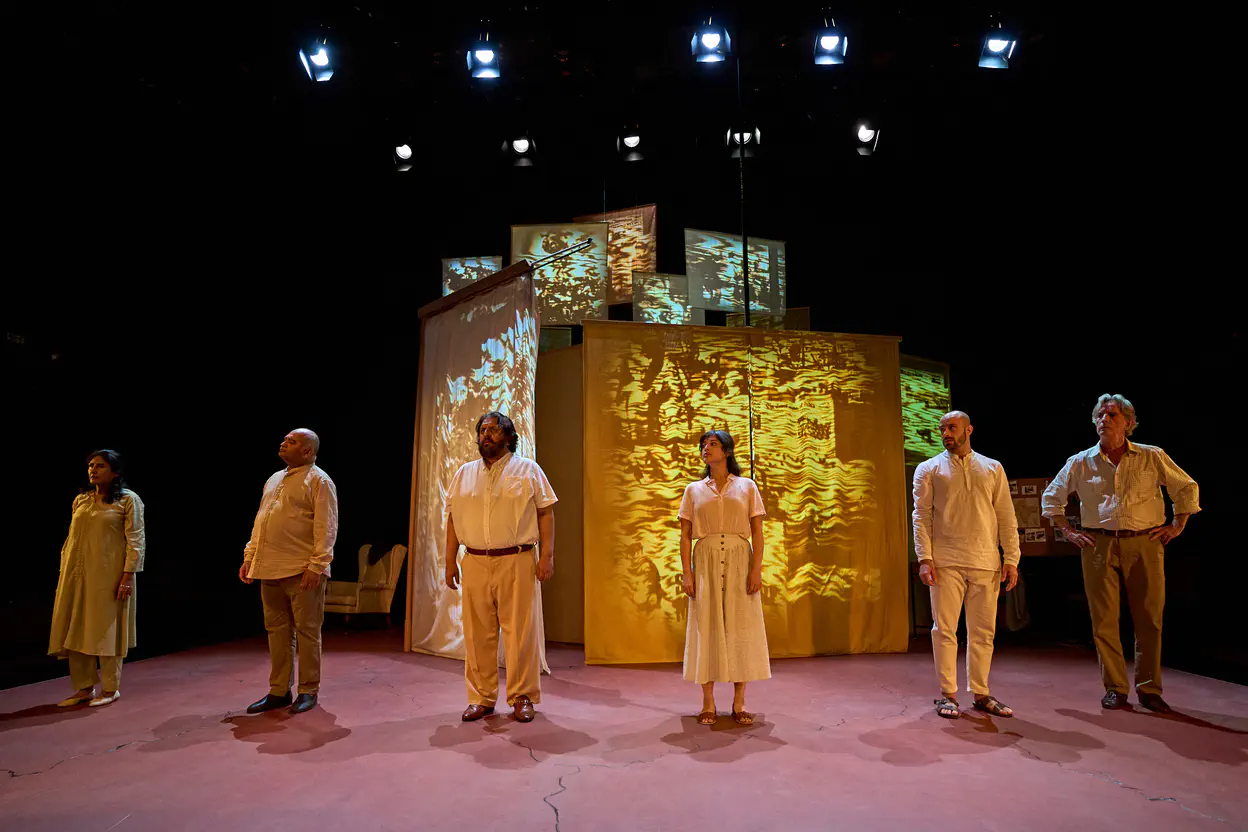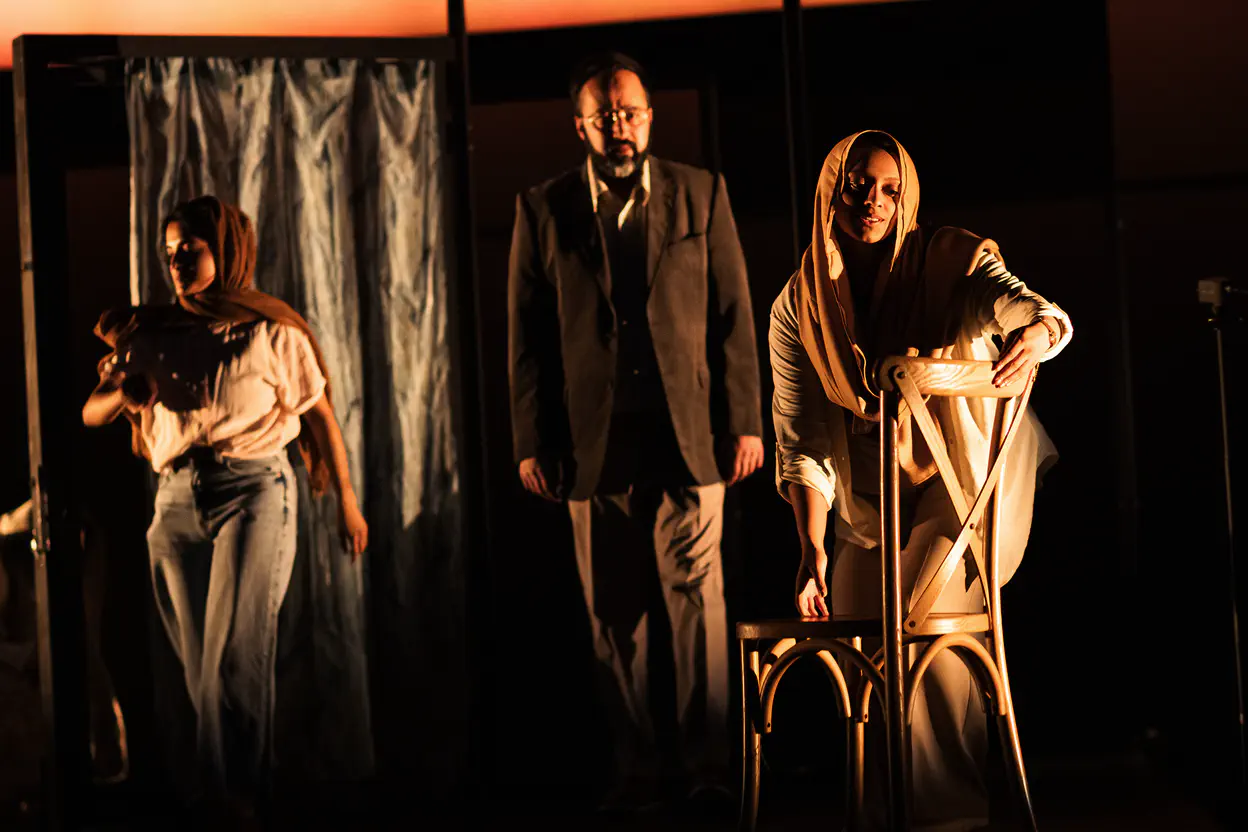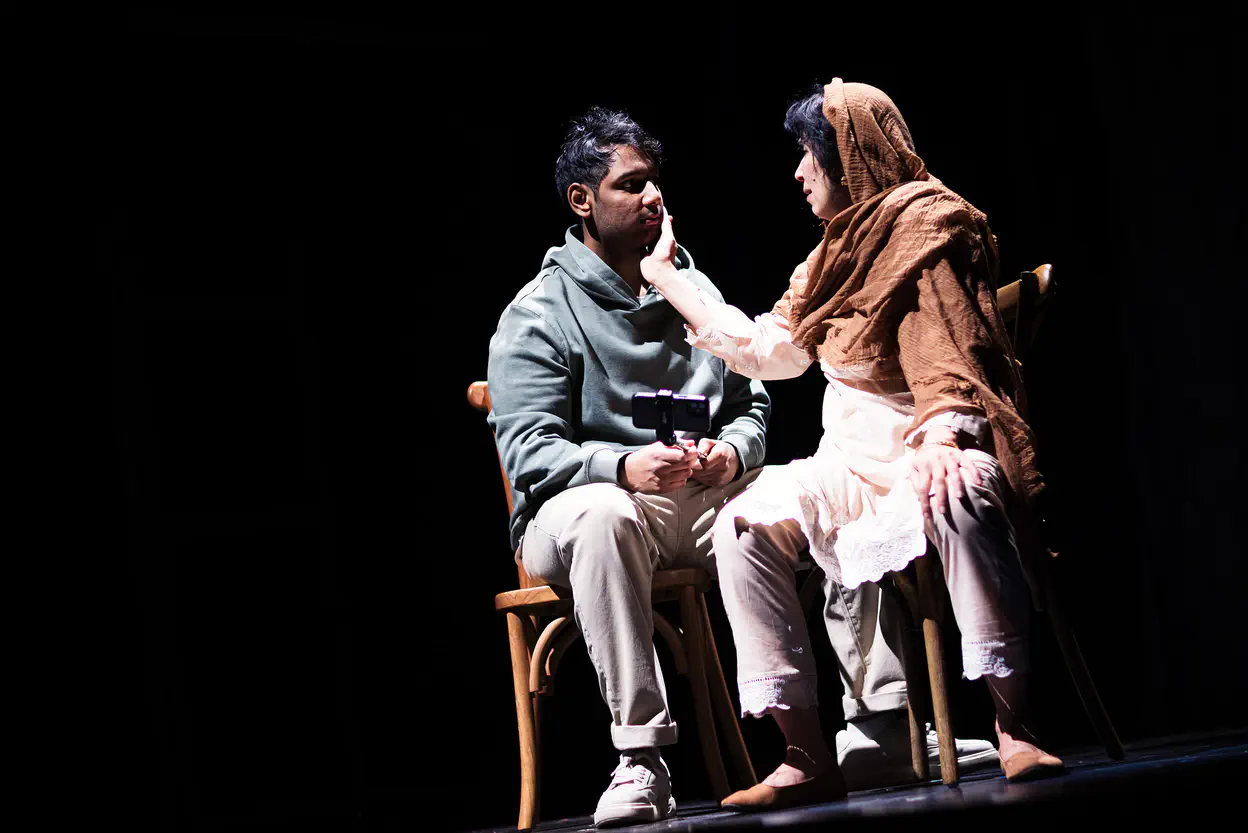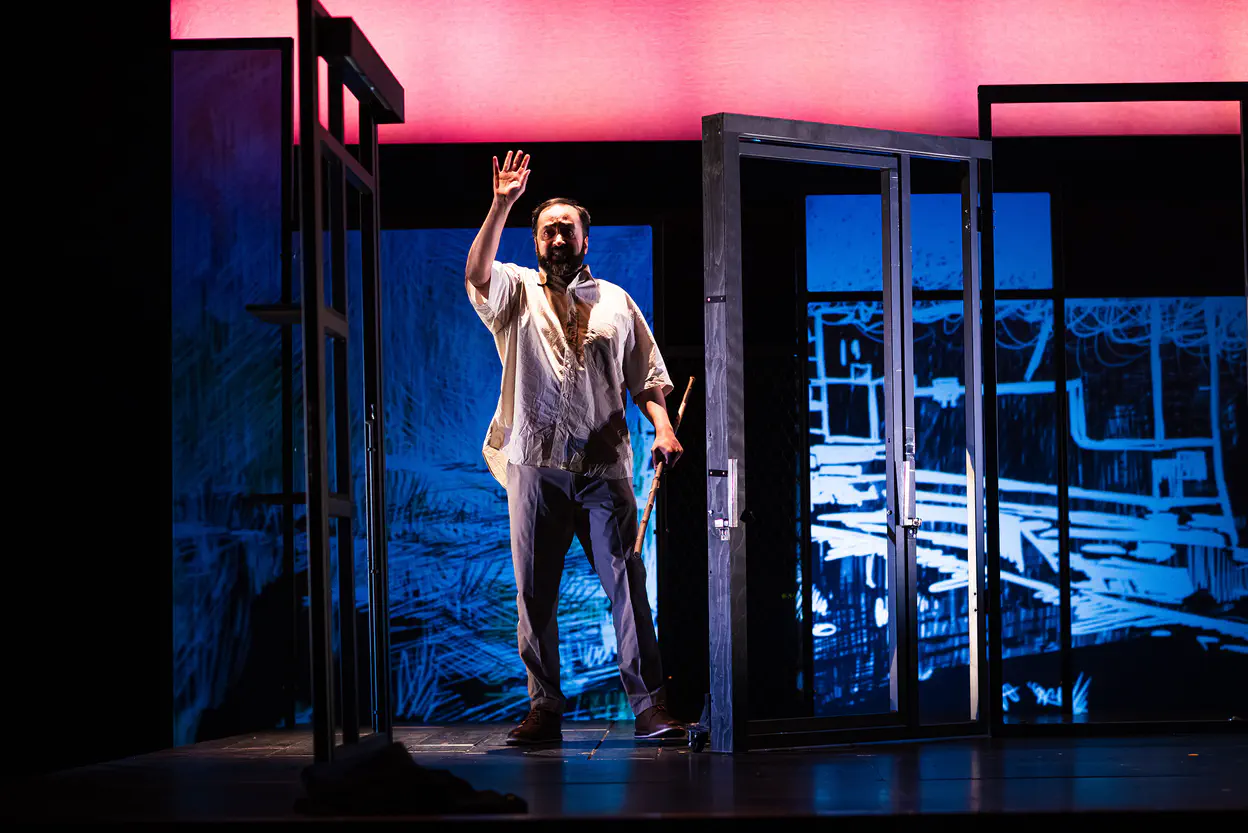Silence
HOME MCR

In 1947, the Partition of India took place. Marking the end of British colonial rule, India was divided into three parts: India, West Pakistan (now Pakistan), and East Pakistan (now Bangladesh). The Partition triggered one of the largest mass migrations in history, with an estimated 10-15 million people crossing between the different countries.
Accompanying this migration came unprecedented violence. Riots, massacres, millions of deaths, and the decimation of entire villages irrevocably changed the social fabric of the region and also shaped modern Britain.
Many personal narratives of those who lived through the Partition have been left untold, with people instead opting to remain silent about what they experienced, in part due to not wanting to remember. Kavita Puri documented the experiences of the British South Asian community in her book ‘Partition Voices: Untold British Stories’ in order to produce an historical record before those with first hand accounts pass away. To commemorate the 75th anniversary of the Partition, these stories have now been adapted into the play Silence. However, calling Silence a play feels disrespectful to the testimonies that influenced this moving theatrical production.

Silence is not just a play but an emotional journey that opened our eyes to details of the Partition that we were unfamiliar with and to the experiences of those who lived it. It’s a raw, authentic, and poignant piece of theatre that seamlessly blends personal narratives with the historical context using communal storytelling. The incredibly talented cast delves into the diverse experiences of Hindus, Muslims, and Sikhs, inviting us to empathize with their pain and resilience.
A particularly striking theme was the exploration of memory and the dangers of remaining silent. The trauma of the Partition has been passed down through generations, with many survivors choosing to remain silent about their experiences. The multigenerational impact, how these experiences shaped identities, and the ongoing dangers of silence were masterfully woven together through a tapestry of personal stories. The characters’ stories, whether about the decisions to leave their homes, the violence witnessed, or the struggle to rebuild their lives, resonated deeply with the audience.
It’s impossible to single out an individual cast member in this production, as each actor was exceptional. They skillfully portrayed the emotional complexity of the accounts, capturing the fear, resilience, and humanity of those affected by the Partition. Their performances were never overdramatized, but always respectful of the subject matter, earning our appreciation and respect.

The performances in Silence were not just powerful, but also deeply nuanced. They were punctuated with moments of silence, during which each character’s pain, loss, fear, and remorse were conveyed without words. The actors’ gestures and expressions channelled emotions beyond words, engaging us in the piece’s central theme: the unspeakable.
The human element remained the focus throughout. The staging was kept to an absolute minimum, so there were no distractions for the audience. Rachana Jadhav has developed authentic and realistic sets that only enhance the stories of brutal acts of violence.
Transitions between scenes were smooth and maintained the pace. We particularly enjoyed the use of video cameras projected onto the stage, capturing the voices of grandparents between the stories — an effective way of highlighting the generational differences.

The lighting design by Simeon Miller was also sublime. The lighting changes to create each story’s different emotions were impressive. The darkness of the stage for the graphic pieces was beautifully juxtaposed with the soft yellow of the moments of introspection and reminiscing about happier times.
Director Iqbal Khan has ensured this is a moving exploration of the Partition of India. The repeated line of ‘We were friends one day and enemies the next’ will remain with us, and the rest of the audience, for a long time.
This is an outstanding piece of theatre which tackles an emotive subject with delicacy and without minimising the voice of those who experienced the Partition.
We attended the final performance of the UK tour of Silence, but we are sure that this is a production that will tour again in the future. Full details of previous productions of Silence can be found on the Tara Theatre Website.
Our tickets to this production were kindly gifted by HOME MCR in exchange for an honest review.
Originally posted: